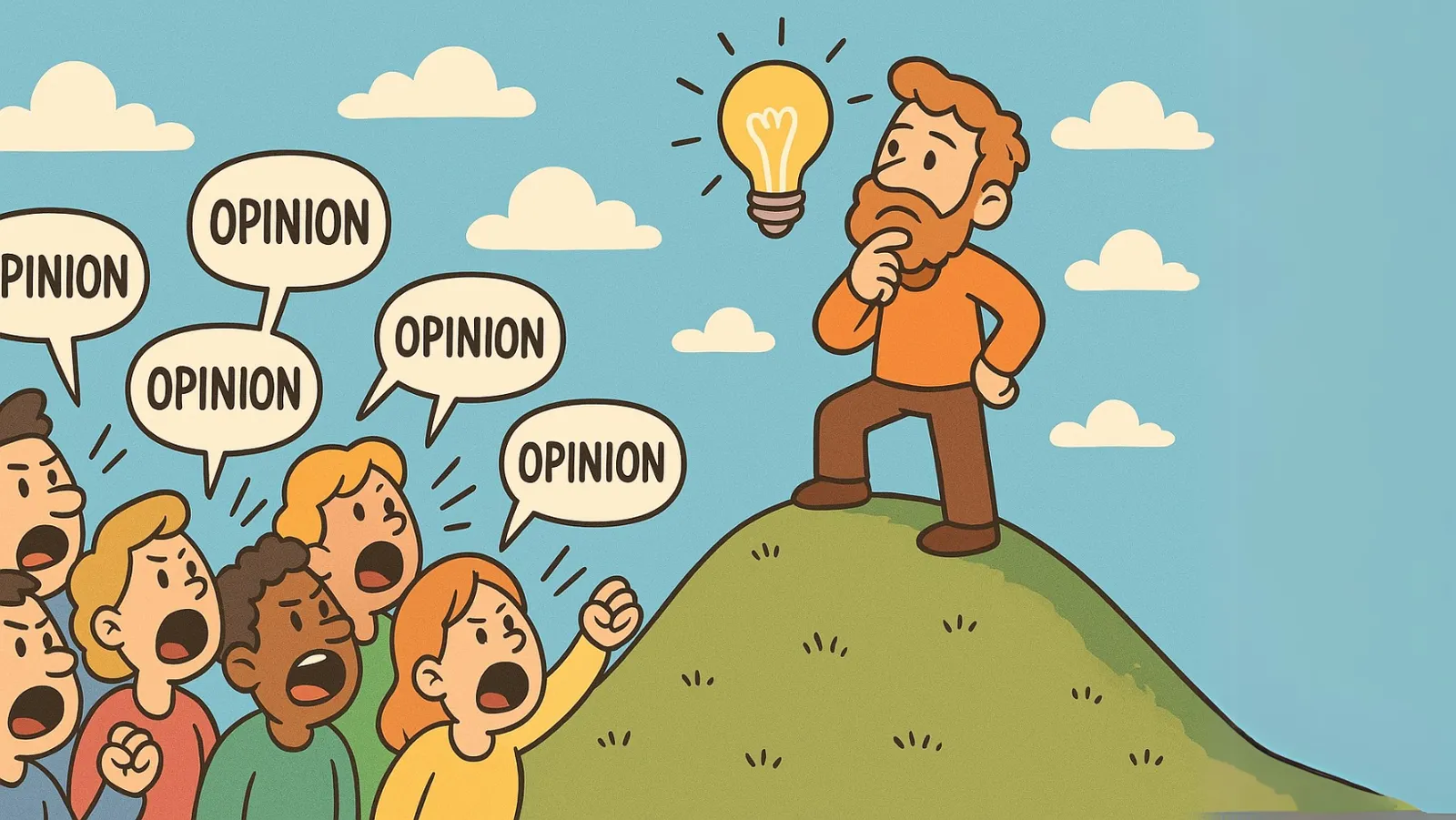People have opinions about all sorts of things. Religion, politics, economics, raising children, drinking, gambling, smoking, exercise, diet, brands, cars, wealth, money, respect, love, sex.
And everyone has a right to their opinion. Unfortunately 90% of opinions have been so ingrained in us, that we follow them religiously - without ever challenging ourselves on them.
Then we come across someone else - with a different opinion - and the shit hits the proverbial fan.
Strong opinions > weak opinions
Let me just get this out of the way. If you have weak opinions, it usually means you don’t know enough about the topic at hand, or you are pretending to have the opinion or you are insecure.
So if you are going to have an opinion, rather have a strong opinion and stand by it - until convinced otherwise.
When is the last time you changed your mind?
This seems like a simple question. But, when prompted, most people cannot remember the last time they changed their mind. Why is that? Most probably because they don’t change their mind very often.
If you’ve known me for 2 seconds, then you will know that I have very strong opinions. And I’m not afraid raise my opinion.
But I am willing to say that I often drop my opinion and change my mind on a topic if the other person:
- Displays a good understanding of the topic at hand and therefore have an informed opinion
- If the other person can understand why I could disagree with them, and put themselves in my shoes
- If the other person is willing to acknowledge the flaws to their opinion (because no opinion is perfect - otherwise it would be scientific truth)
- If the other person can debate without becoming frustrated (if you lose your temper during a debate, you’ve already lost)
How can I have strong opinions, loosely held
- Be willing to listen to other opinions
- Debate first and then decide
- Understand that there is a difference between an opinion and scientific truth
The difference between an opinion and scientific truth
It pains me to have to even do this explanation, but for some people the lines between these two are definitely blurred.
Opinion
If you are a person who comes from money - then you will be an asshole
Scientific Truth
If you travel between at 100km/h for 30 minutes, you will cover a distance of 50km.
Saying that a person who comes from money will be an asshole is definitely an opinion. This is not to say that if you have this opinion it is completely unfounded. Yes, you might have met someone who is an asshole AND wealthy, but this does not mean they are an asshole because they are wealthy. There is a difference between correlation and causation.
What I am trying to illustrate is that if you cannot prove something, then it’s an opinion. If something can be proven, then you cannot have an opinion on the subject, because it’s a scientific truth.
So next time, before you form an opinion, or accept someone else’s opinion as your own, ask yourself whether what you are choosing to believe can be proven and if not, I would reconsider simply accepting it as truth.
When to raise an opinion?
For me, this is probably one of the hardest aspects of being a person with strong opinions. If you have strong opinions, you are guaranteed to find yourself in situations where other people have a different opinion.
Do you raise your opinion or not? I think, it depends:
- If you’re not willing to change your opinion, then don’t even have the conversation
- Same goes for the other person, if they won’t be willing to change their opinion, don’t engage
- If care about the other person, then it’s worth raising your opinion - we need to help each other become better, and if someone you care about is walking around with an unfounded opinion, help them.
So, Should We Even Bother With Opinions?
I’ll admit, while writing this post, I started wondering if we’d all be better off ditching opinions entirely. Imagine it: a world where everything’s based on cold, hard scientific truth—no arguments, no bullshit, just facts. Sounds tempting, right? But here’s the problem—it’s impossible. Life isn’t a math equation. You can’t prove whether pineapple belongs on pizza. Opinions live in the grey areas of life, and they’re not going anywhere.
Here’s my take: we should have opinions. Strong ones. They’re how we figure out who we are, push the world forward, and keep things interesting. But don’t be a jackass about it—hold them loosely. If someone comes along with a better argument, solid reasoning, and doesn’t lose their temper mid-debate, let it sink in. Change your mind if it makes sense. That’s not weakness; it’s strength.
The trick is knowing where opinions end and truth begins. If it can’t be proven, it’s fair game for debate—just don’t confuse it with reality. Next time you’re ready to die on a hill, ask yourself: “Can I back this up, or am I just yelling into the wind?” Then decide if it’s worth the fight. Because if we’re all just screaming past each other, clinging to untested opinions, we’re not growing—we’re just loud.
So, raise your voice. Have your say. But be ready to listen, rethink, and maybe even admit you’re wrong. That’s how we get better—together.


